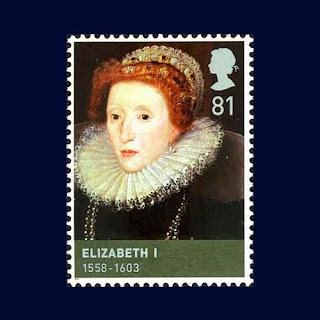Queen Elizabeth I was born on 07 September 1533 was one of England's most iconic monarchs, ruling from 1558 until her death. The daughter of King Henry VIII and Anne Boleyn, she ascended the throne after the brief reigns of her half-siblings, Edward VI and Mary I. Elizabeth's reign, known as the Elizabethan Era, is often considered a golden age in English history, marked by flourishing arts, exploration, and national pride.
Key Aspects of Her Reign:
Religious Settlement: One of Elizabeth's earliest and most significant acts as queen was to establish a religious settlement that restored Protestantism after her Catholic predecessor, Mary I. She declared herself the Supreme Governor of the Church of England, solidifying the Anglican Church and avoiding religious extremism on either side. Her policy of via media (middle way) sought to balance Protestant and Catholic interests.
The Spanish Armada (1588): Elizabeth's reign saw a significant rivalry with Catholic Spain, culminating in the famous defeat of the Spanish Armada in 1588. This event not only secured England's safety from invasion but also boosted Elizabeth's popularity and England's national pride.
Cultural Renaissance: The Elizabethan Era was a time of significant cultural achievement, particularly in literature and theatre. Writers such as William Shakespeare, Christopher Marlowe, and Edmund Spenser thrived under her patronage. This period is often regarded as one of the greatest in English literary history.
Exploration and Expansion: Elizabeth supported explorers like Sir Francis Drake and Sir Walter Raleigh, who helped expand England’s global influence through exploration and colonization. This laid the groundwork for the future British Empire.
Marriage and Succession: Elizabeth never married, earning her the title "The Virgin Queen." Her decision to remain single avoided potential conflicts that a foreign or English husband might have brought. However, it left the issue of succession uncertain. After her death, the crown passed to James VI of Scotland, uniting England and Scotland under one monarch.
Personality and Leadership: Elizabeth was known for her intelligence, charisma, and political savvy. She managed to maintain a delicate balance between her advisors and the factions at court, playing a pivotal role in shaping her own image and power. Her speeches, including the famous address to her troops at Tilbury, showcased her skill as a leader.
Elizabeth I’s reign ended with her death on 24 March 1603 and she was succeeded by James I, marking the end of the Tudor dynasty. Despite the challenges she faced, her 45-year reign is remembered as a period of national strength, cultural richness, and relative stability.




